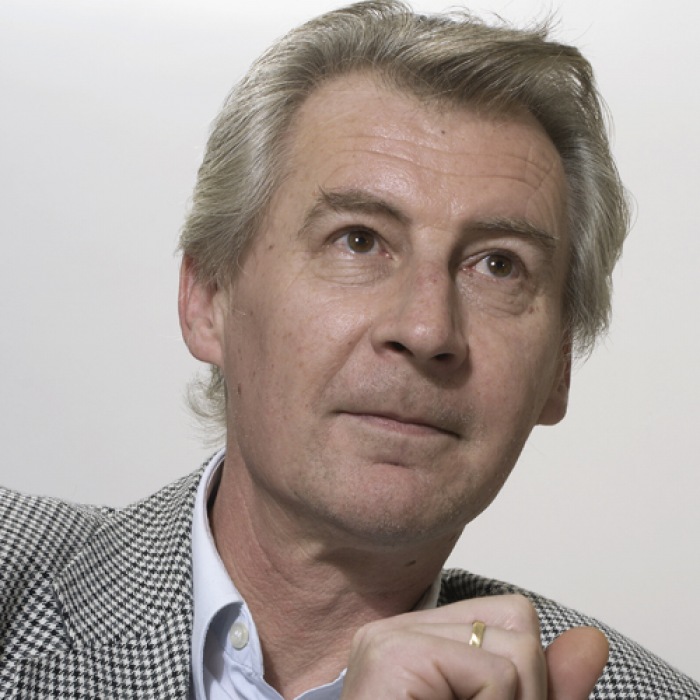An Incorrigible Free Spirit
Eulogy to Franz M. Wuketits

wuketits_franz_2011-revelinfrerk___9045.jpg
Photo: Evelin Frerk
The Viennese zoologist, evolutionary biologist and science theorist Franz M. Wuketits is dead. He died on Wednesday after a long illness at the age of 63. A eulogy by Michael Schmidt-Salomon.
"The situation is hopeless, but not serious!" – With these words Franz M. Wuketits, whom his friends only called "Manfred" (the ominous "M." in his name), would probably have commented on his own death. I heard him say this phrase countless times – and yet I had to laugh time and again when he recited it with his wonderful Viennese humour. Even now the memory of him brings a smile to my face, even though the news of his death deeply unsettled me.
I first met Manfred in the late 1990s at one of the wonderful seminars that Georg Batz organized in Nuremberg. Manfred presented his book "Naturkatastrophe Mensch" ("Natural Disaster Human") in which he described evolution as a "zigzag path on the narrow ridge of life". Originally, the seminar organizers envisioned me criticizing the evolutionary biologist, who was acclaimed as a "compulsive pessimist", from a humanistic perspective, but I quickly realized that this man was absolutely right to deny any "automatic progress" not only in nature, but also in human culture. (Manfred went much further in this respect than Stephen Jay Gould in his book "Full House", which was published at about the same time.)
Personally, I consider Manfred's work, which was reprinted in 2009 with the more appropriate title "Evolution ohne Fortschritt" ("Evolution Without Progress"), to be one of the best books ever written on the subject. I can only recommend it to anyone interested in a contemporary interpretation of evolutionary theory.
Back then already, at our first meeting in Nuremberg, a deep friendship developed between us. In the following years, I intellectually benefitted greatly from this. Manfred gave me, who until then was shaped by the thought patterns of the social sciences and the humanities, the decisive impulse to engage more intensively with the natural sciences and to transcend the gaps between the "three knowledge cultures". I could have hardly chosen a better mentor for such an enterprise. Manfred was a master of interdisciplinary thinking. In the 1970s he had studied not only zoology and palaeontology, but also philosophy and philosophy of science. After his PhD (1978) and habilitation (1980) he taught at the University of Vienna, became a founding member and director of the "Konrad Lorenz Institute for Evolutionary and Cognitive Research", and published about 500 essays and over 40 books, establishing himself as one of the leading experts in the fields of history and theory of the biosciences, evolutionary theory, evolutionary epistemology and ethics, as well as sociobiology.
In 2002 Manfred invited me to the conference "Humanität – Hoffnungen und Illusionen" ("Humanity - Hopes and Illusions"), where I was to give a lecture on the "Perspective of Evolutionary Humanism". Without any intention, Manfred triggered the founding of the Giordano Bruno Stiftung, which was created in 2004 on the blueprint of that very lecture. Of course Manfred was actively involved in the work of the foundation from the very beginning. In fact, he was the very first gbs advisory board member and motivated many of his colleagues (including Volker Sommer and Bernulf Kanitscheider) to join the foundation as well. In March 2004 Manfred was naturally also the first person to give a lecture (topic: "The monkey in us") in the newly created "gbs-Forum" (at that time still at the old foundation headquarters in Mastershausen). Subsequently, Manfred also assumed central functions at important foundation events. He gave the laudatory speech for Richard Dawkins at the presentation of the Deschner Prize 2007 (documented in volume 2 of the gbs publication series) as well as the laudatory speech for Charles Darwin at the ceremony marking his 200th birthday at the German National Library (see volume 3 of the gbs publication series).
In those 20 years that we knew each other I learned to appreciate Manfred in his many, sometimes bizarre facets: He was a brilliant, extensively educated intellectual from whom one could learn incredibly much, a Viennese original who found it difficult not to be allowed to smoke in coffee houses, an incorrigible free spirit, who defended himself against any form of paternalism (even if he liked to preach the "praise of cowardice"), a fanatical book lover who could spend hours in an antiquarian bookshop, a wonderfully odd fellow who did not wake up until late in the evening (which is why he seldom gave seminars before 6 pm), a real rascal who could make people laugh again and again with his clever formulations.
In recent years we unfortunately saw each other less often, especially when he struggled with the symptoms of his severe cancer since the summer of 2017, which forced him to cancel many appointments. Before that, however, we spent whole nights discussing, joking, laughing, drinking, and smoking. Often we didn't part until the early morning hours. At the foundation meetings, we were always the last ones to go to bed. We rarely completely overindulged - with one exception, perhaps, when we accidentally emptied a 75-year-old bottle of port wine in the foundation bar between four and five in the morning, which was made in the birth year of gbs founder Herbert Steffen. Fortunately, Herbert was not angry at our mishap, but highly amused ("I didn't think you could still drink the old stuff!"). Rarely has Manfred been so relieved.
I will miss the conversations with Manfred. He was one of those people who I would have granted an exclusive right to eternal health without envy. Yesterday he died in his wife's arms. I almost can't believe he's dead.
